Uncategorized
‘Fela’s spirit is still alive’-Gov. Ambode says as he unveils fela’s statue
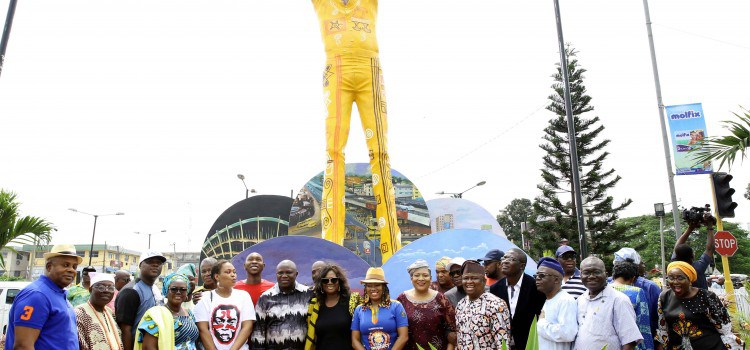
 Lagos State Governor, Mr. Akinwunmi Ambode, on Sunday eulogized the virtues of late Afrobeat legend and freedom fighter, Fela Anikulapo-Kuti describing him as an enigmatic artiste who used the platform of his art to agitate for social and human rights by challenging government and people to explore development through social and economic activities that are rooted in African values.
Lagos State Governor, Mr. Akinwunmi Ambode, on Sunday eulogized the virtues of late Afrobeat legend and freedom fighter, Fela Anikulapo-Kuti describing him as an enigmatic artiste who used the platform of his art to agitate for social and human rights by challenging government and people to explore development through social and economic activities that are rooted in African values.
Speaking while unveiling the Liberation Statue in honour of Fela erected at Allen Roundabout in Ikeja as part of activities marking his 79th posthumous birthday and the 20th anniversary of his demise, Governor Ambode said aside from challenging people to free their minds of all inhibitions and actualise their true potentials, the late music icon also voluntarily turned his back on a life of comfort and privilege, and took up his saxophone as a weapon to fight for the liberation of the people from neo-colonialism and bad governance.
While insisting that the spirit of Fela was still alive as a movement of social consciousness and justice against oppression, the Governor said the late legend made the world sit up and take notice of the energy of African art and music, adding that he will forever be accorded his position in the global hall of fame of artistes.
He said: “The phenomenon that the world knows as “Fela” was deeply rooted in the evolution of Lagos State. The story of music, art, entertainment and tourism in Lagos and Nigeria cannot be told without an eloquent mention of the “Abami eda”.
“On this day, October 15th, which would have been Fela’s 79th birthday, the government and people of Lagos State celebrate ‘’Fela’’ with the unveiling of this Liberation Statue. It has been 20 years since he passed on but the memories he left us with remain evergreen. Today we celebrate a man who voluntarily turned his back on a life of comfort and privilege, and took up his saxophone as a weapon to fight for the liberation of our people from neo-colonialism and bad governance.
“This “Liberation” statue is not an image of Fela but a symbol of Fela’s philosophy. This artwork was created as a form of respect and remembrance to this legend; what he stood for and fought for with his music; his mythology; struggle for freedom; fight for human dignity; social consciousness; courage and Pan-Africanism,” the Governor said.
While reiterating the continued commitment of the State Government to fully harness the potentials of entertainment, creative arts and tourism to transform the economy of the State and generate wealth and job opportunities for the people, Governor Ambode said his vision is to create a vibrant arts and culture sector that would empower young and talented population to find their own voices and impact society positively.
He said though Fela was no more, but it was gratifying that he is still alive in his music and in the music of Femi, Seun and other artistes who have followed his style of music, assuring that the unveiled statue would be the first of many to celebrate the Afrobeat icon.
Responding on behalf of the family, Fela’s daughter and social commentator, Yeni Kuti commended Governor Ambode and the artist for coming up with such a monument to recognize and honour their father in a big way, saying that it was a good representation of their late patriarch.
She specifically justified the design of the monument, saying it was the expression of how the artist felt about the late legend.
She said: “Before people on social media will start to say the Fela has no head or it has no hand and so on, it is art and before you abuse us, let me answer quickly. It is art. How an artist feels is how he feels because if he had put a head and the head did not look like Fela, everybody will say the head did not look like Fela so now you cannot abuse the head because it is not even there.
“The artist has said it is a spirit and when Fela was alive, he hated statues and so I think this effigy is a good representation of what Fela would have wanted because he did not like statues and that is why at the Museum you will notice that there is no statue of Fela. Everybody wants to do his statue and I have fought against it. So, this one I can accept it and so I want to thank the artist who designed it and also thank Governor Ambode for recognizing Fela in a big way.”
The visual artist who designed the effigy, Abolore Sobayo said the work was an expression of how he feels about the late Afrobeat legend, saying that it was designed to generate discussion about the emancipation of the people.
While justifying the fact that the art work had no head, Sobayo said the design came out of extensive research on what Fela represented through his music, and how to use same to correct some of the things he complained about years ago that are still happening.
“For me as an artist, art transcends beyond beauty or aesthetics. For me, art should generate discuss; art should ask question and art should provoke our thoughts. For me, the creation of the Liberation Statue is to represent the essence of Fela by using his costume.
“For me, I believe that this should serve as a conscious to our subconscious that twenty years after Fela’s demise, most of the things he talked about are still happening. For me, this work should come to us not just as a beautiful work, but it should come to us as something that will ginger us to look at the positivity in our lives; positivity in the values of his music; for us to start to emancipate our people positively. Going forward, I have been able to use symbolism as a medium to represent Fela through his costume and to represent his essence,” Sobayo said.
The event was attended by notable members of late Fela’s family including Yemi Ransome-Kuti (Head of family), Seun Kuti, Kunle Kuti, Yeni Kuti, Motunrayo Kuti, Dotun Olukoye Ransome-Kuti, Senior Advocate of Nigeria, Femi Falana; veteran Nollywood actor, Pa Olu Jacobs and his wife, Joke Silva; Fela’s first manager, Chief Benson Idonije, among others.
Governor Ambode was also at the Kalakuta Museum on Gbemisola Street, Ikeja where he was received by Afrobeat star and Fela’s son, Femi Kuti, among other family and devotees of the late music icon.
He later hosted a Special Lagos Jump to formally round off Felabration 2017 at the New Afrika Shrine, thereby becoming the first Governor in his official capacity to visit the shrine to end the show.
news
Ramadan 2026: Let’s Be United, Shina Akanni Urges Muslims.
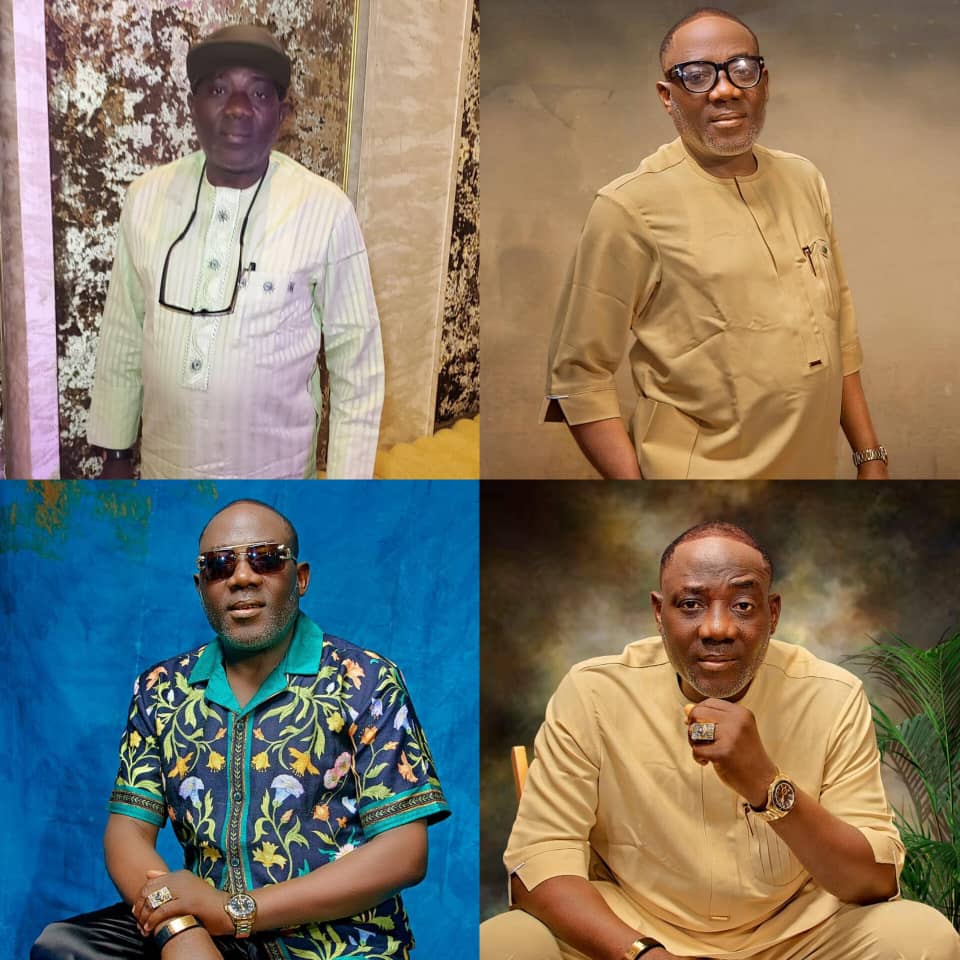
Ramadan 2026: Let’s Be United, Shina Akanni Urges Muslims.
As Muslims all over the world begins the 30 days compulsory fasting and prayer today,top Fuji Musician Aare Sir Shina Akanni Aroworeyin Scorpido has congratulates them for witnessing another month of Ramadan.
Akanni advised them to follow the teachings of the the Holy Prophet Muhammad (SAW) which is peaceful co existence among themselves and their neighbor ‘because Islam is Religion of peace”.
He said the month of Ramadan is an holy month therefore Muslims should try as much as they can to maintain peaceful coexistence among themselves and others and that they should see themselves as ambassador of peace.
While praying for Nigeria,Aare Sir Shina Akanni Aroworeyin Scorpido said he believes that there will be an economic turnaround soon because what’s is happening now are signs of thought times that never last “if we can pecevere things will get better”.
The Scorpido crooner who recently released a hip hop single titled “Magbelo” said he is currently working on a complete album which will be released before the end of the year.
Aare Sir Shina Akanni Aroworeyin Scorpido whose last album ‘ABCD” is still in hot demand said that his next album will be a pot pouri of all kinds of music because his brand of Fuji music is a blend Fuji , Hip-hop,Apala ,Highlife and others.
Uncategorized
The Enemies Within: Jonahs Are Not Manageable — Dr. Chris Okafor
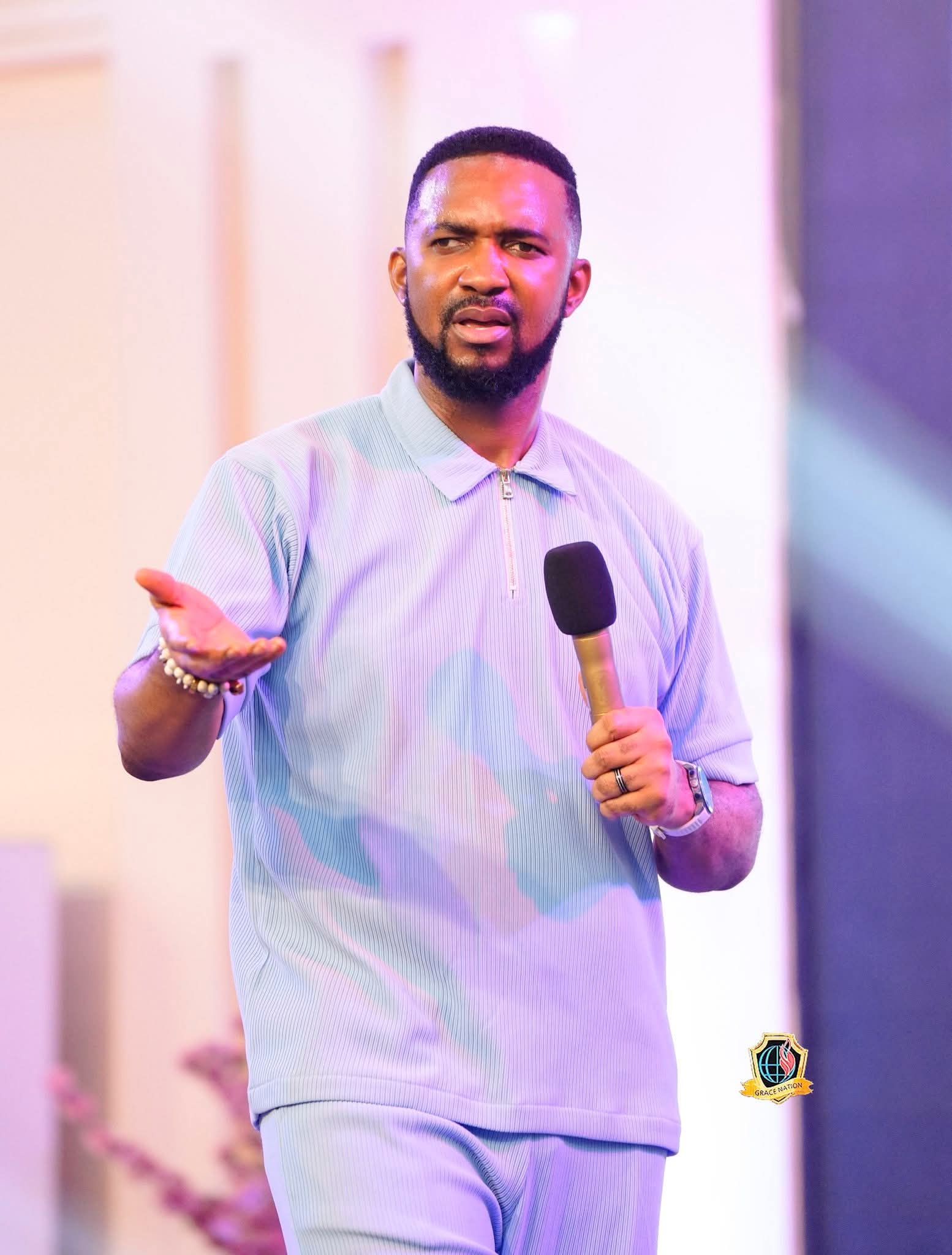
The Enemies Within:
Jonahs Are Not Manageable — Dr. Chris Okafor
…….“To remove Jonah, you must bring Jesus into the matter.”
When a “Jonah” enters a person’s life, confusion, gossip, blackmail, betrayal, and the pull-him-down syndrome often follow. But the moment Jesus Christ is invited into the situation, the storm subsides and stability is restored.
This was the central message delivered by the Generational Prophet of God and Senior Pastor of Grace Nation Global, Dr. Chris Okafor, during the midweek non-denominational Prophetic Healing, Deliverance and Solutions Service (PHDS) held at the international headquarters of Grace Nation Worldwide in Ojodu Berger, Lagos, Nigeria.
The Clergyman also declared that Nothing Happens Without Spiritual Influence
In his sermon titled “The Enemies Within,” Dr. Okafor declared that nothing happens without spiritual involvement. According to him, every visible battle has an invisible root.
Referencing the biblical story of Jonah, the Man of God explained that Jonah’s presence on the ship gave access to a contrary spirit that tormented everyone onboard.
Despite the losses suffered by innocent traders and sailors, the storm persisted because of one man’s disobedience.
However, he noted that when Jesus speaks into a situation, every storm must obey. Just as Christ rebuked the storm and it ceased, so too will the storms in believers’ lives subside when He is invited into their “boat.”
*The Impact of a Jonah*
Dr. Okafor further emphasized that “Jonahs” are difficult to manage. When such individuals are present in one’s circle, progress becomes delayed.
What should ordinarily manifest quickly may be prolonged or frustrated because someone close—someone who understands you deeply—may be operating as a spiritual adversary.
He explained that negative narratives, unnecessary battles, and unexplained setbacks often begin when a “Jonah” gains access to a person’s inner circle.
*The Solution*
“To remove Jonah from the boat of your life,” the Generational Prophet declared, “you must invite Jesus Christ into the matter.”
According to him, when Jesus takes control of the boat, the plans of the enemy are overturned.
What was designed for downfall becomes a testimony. No storm or battle can succeed where Christ reigns, and the enemy is ultimately put to shame.
The midweek service witnessed a strong prophetic atmosphere, with the power of God evident through deliverance, restoration, and divine revelations.
The Generational Prophet ministered deeply in the prophetic, calling out names, villages, and addressing alleged spiritual strongholds, as many lives were reportedly restored—all to the glory of God.
By Sunday Adeyemi
Uncategorized
FROM BORDER TO MARKETS: HOW NIGERIA’S REFORMS ARE REWRITING AND MODERNISING TRADE FACILITATION By O’tega Ogra
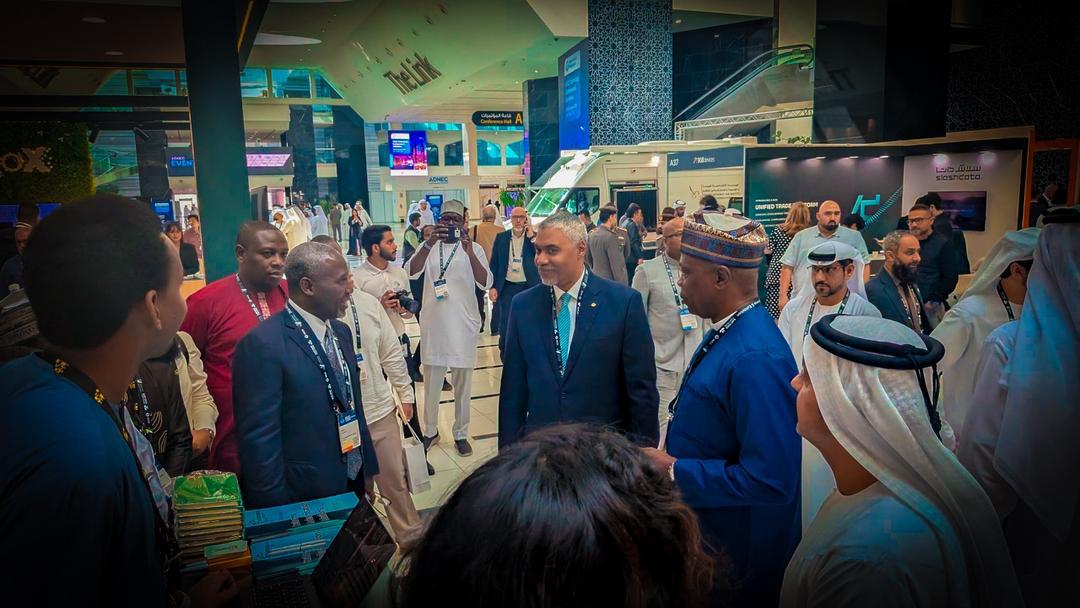
FROM BORDER TO MARKETS: HOW NIGERIA’S REFORMS ARE REWRITING AND MODERNISING TRADE FACILITATION
By O’tega Ogra
On the surface, the 2026 World Customs Organization (WCO) Technology Conference in Abu Dhabi, held in the last week of January, followed a familiar script: flags, formal sessions, carefully worded speeches. But beneath the choreography, something more consequential was unfolding. As customs chiefs and trade officials compared notes on the future of borders, Nigeria arrived not with theory, but with a working proposition.
The Nigeria Customs Service (NCS) Modernisation Project, being implemented through Trade Modernisation Project (TMP) Limited, unveiled to a global audience of customs administrators and policy leaders a window into how Africa’s largest economy is confronting one of the most complex challenges in public administration: reforming the machinery of trade while it is still running.
For decades, customs reform was treated largely as a technical exercise—frequent patches here, shoddy fixes there; new software in one corner, revised procedures in another. Nigeria’s presence in Abu Dhabi signalled something different. TMP Limited, working in partnership with the NCS, advanced the argument that trade is a cornerstone of economic development and must be supported by organic, sustainable partner ecosystems. Such ecosystems deliver speed and trust, revenue and credibility, and secure borders without stifling commerce.
That argument resonated in a room increasingly aware that global trade is no longer defined solely by tariffs and treaties, but by data, interoperability, and the quiet efficiency of systems that simply work.
The annual WCO Technology Conference has, in recent years, become a barometer for the direction of global trade governance. This year’s discussions reflected a shared anxiety: supply chains are more fragile, compliance risks are rising, and governments face mounting pressure to collect revenue without discouraging investment. Customs administrations now sit at the intersection of all three.
Nigeria’s response has been to attempt a full reset.
At the heart of this effort is the NCS Modernisation Project, implemented through a Public-Private Partnership (PPP) arrangement with TMP Limited as the concessionaire. The project seeks to replace fragmented technology deployments and manual processes within the Nigeria Customs Service with a single, integrated framework. This is anchored on B’Odogwu, a Unified Customs Management System (UCMS) that brings together cargo clearance, risk management, payments, and inter-agency collaboration. The ambition is sweeping—and so are the stakes.
Alhaji Saleh Ahmadu, OON, Chairman of TMP, framed the initiative as nothing less than an institutional reconstruction, designed to position the NCS at the forefront of global customs administration technology, aligned with international standards and assurance frameworks.
“Digital trade modernisation is not just about upgrading systems,” he told participants in Abu Dhabi. “It is about upgrading trust, predictability, and confidence in how trade flows through our borders.”
That choice of words matters. Nigeria’s economy has long struggled with the perception gap between its size and the ease of doing business. Investors cite delays. Traders complain of opacity. Government points to revenue leakages. In this context, customs reform becomes as much a credibility project as a technical one.
Saleh’s message was timely and direct: modern trade demands modern customs. Data-driven processes, automation, and risk-based controls are no longer luxuries; they are prerequisites for competitiveness in a world where capital moves faster than policy.
The institutional face of this digital transformation is the Comptroller-General of Customs, Bashir Adewale Adeniyi, who led Nigeria’s delegation to Abu Dhabi. His message reflected a subtle but important shift in how customs leadership now understands its role.
“Customs administrations today must evolve from gatekeepers to facilitators of legitimate trade,” Adeniyi said. “Nigeria’s customs modernisation project reflects our determination to place the Nigeria Customs Service at the centre of national economic transformation.”
It is a familiar refrain globally, but one that carries particular weight in Nigeria, where customs revenue remains a critical pillar of public finance. Automation, Adeniyi argued, is not about weakening control; it is about strengthening it through intelligence rather than discretion.
Risk management systems reduce unnecessary physical inspections. Integrated platforms limit human contact. Data analytics improve compliance targeting. When executed well, the result is faster clearance for compliant traders and tighter scrutiny for high-risk consignments.
In Abu Dhabi, peers from Asia, Europe, and Latin America listened closely to Nigeria’s presentation. Reforming customs in a small, open economy is one thing. Doing so in a market of over 200 million people, home to some of Africa’s busiest ports and its largest economy, is quite another.
Nigeria’s engagement emphasised that customs modernisation is embedded within a broader economic reform agenda under President Bola Ahmed Tinubu, GCFR. Simplifying trade procedures, strengthening revenue assurance, and aligning with international standards form part of a wider effort to reposition the economy for investment-led growth.
What makes the project particularly noteworthy is its insistence on end-to-end coherence. Rather than digitising isolated functions, the reform aims to connect agencies, harmonise data, and reduce duplication across government—an all-of-government approach that acknowledges an uncomfortable truth: trade friction is often created not at the border, but between institutions.
The WCO 2026 Technology Conference offered Nigeria more than a platform; it provided a stress test. Questions from peers were pointed. How will change be sustained across political cycles? How will capacity be built? How will entrenched institutional behaviours be unlearned?
The responses were pragmatic. Reform is being phased. Training programmes are ongoing. International benchmarks are being adopted not as slogans, but as operating standards. There were no claims of perfection—only a clear statement of intent.
“Our engagement here underscores Nigeria’s commitment to international cooperation,” Adeniyi noted. “We are learning, sharing, and contributing to global conversations on the future of customs administration.”
That contribution matters. As Africa moves to deepen regional trade under continental frameworks, customs efficiency will determine whether integration succeeds in practice or remains aspirational on paper. Nigeria’s experience, if successful, could offer a valuable template for other developing economies navigating similar constraints.
In Abu Dhabi, the mood was cautious but curious. Reform fatigue is real in many countries. Yet there was a growing sense that Nigeria’s effort—precisely because of its scale and difficulty—deserves attention.
Borders are rarely glamorous. But they are decisive. In choosing to modernise its borders in public, under global scrutiny, Nigeria is signalling something beyond technical competence. It is signalling seriousness.
And in global trade, seriousness still counts.
O’tega Ogra is Senior Special Assistant to President Bola Ahmed Tinubu, GCFR, responsible for the Office of Digital Engagement, Communications and Strategy in the Presidency.
-

 celebrity radar - gossips6 months ago
celebrity radar - gossips6 months agoWhy Babangida’s Hilltop Home Became Nigeria’s Political “Mecca”
-

 society6 months ago
society6 months agoPower is a Loan, Not a Possession: The Sacred Duty of Planting People
-

 society5 months ago
society5 months agoReligion: Africa’s Oldest Weapon of Enslavement and the Forgotten Truth
-

 news6 months ago
news6 months agoTHE APPOINTMENT OF WASIU AYINDE BY THE FEDERAL GOVERNMENT AS AN AMBASSADOR SOUNDS EMBARRASSING






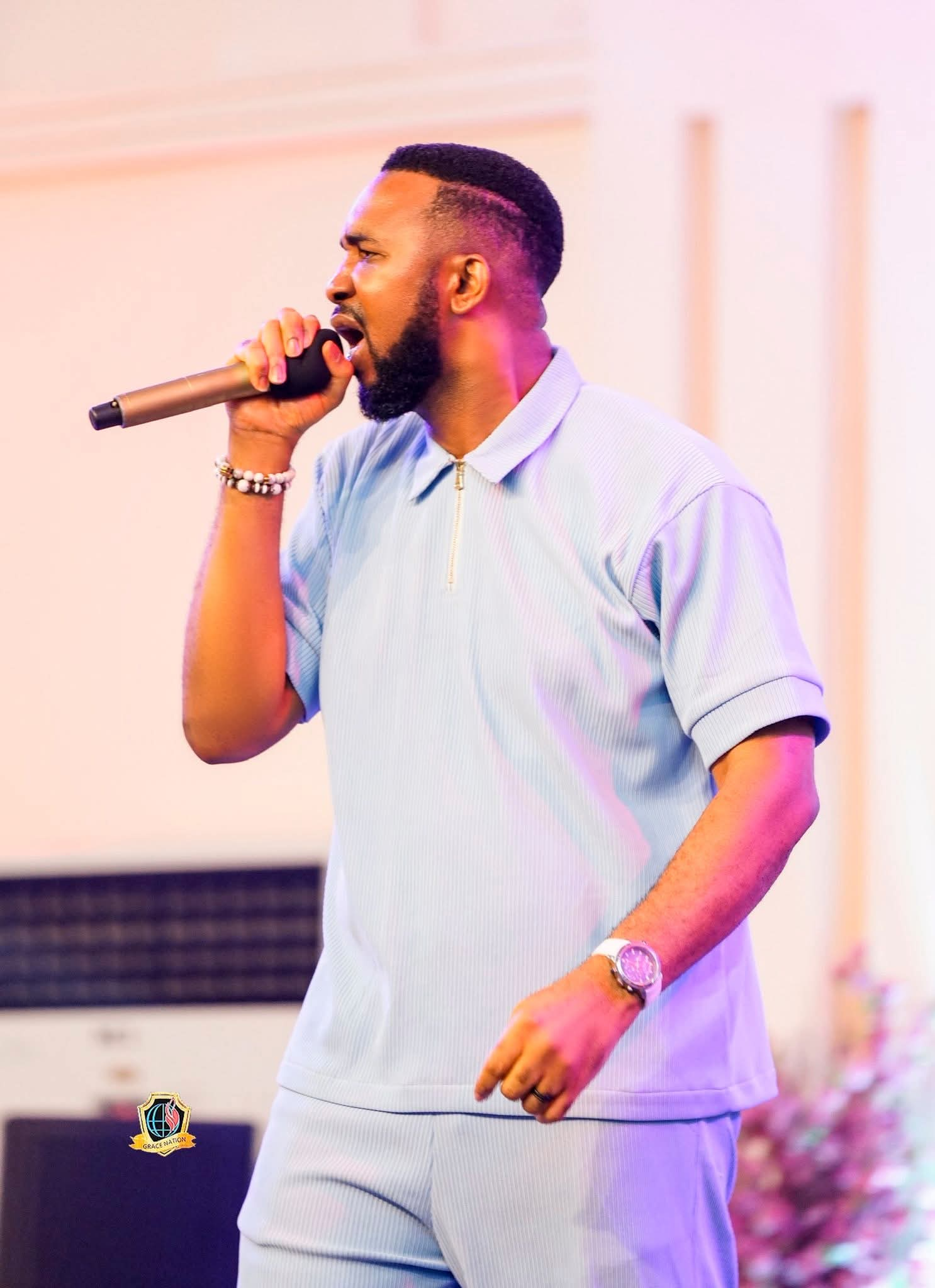
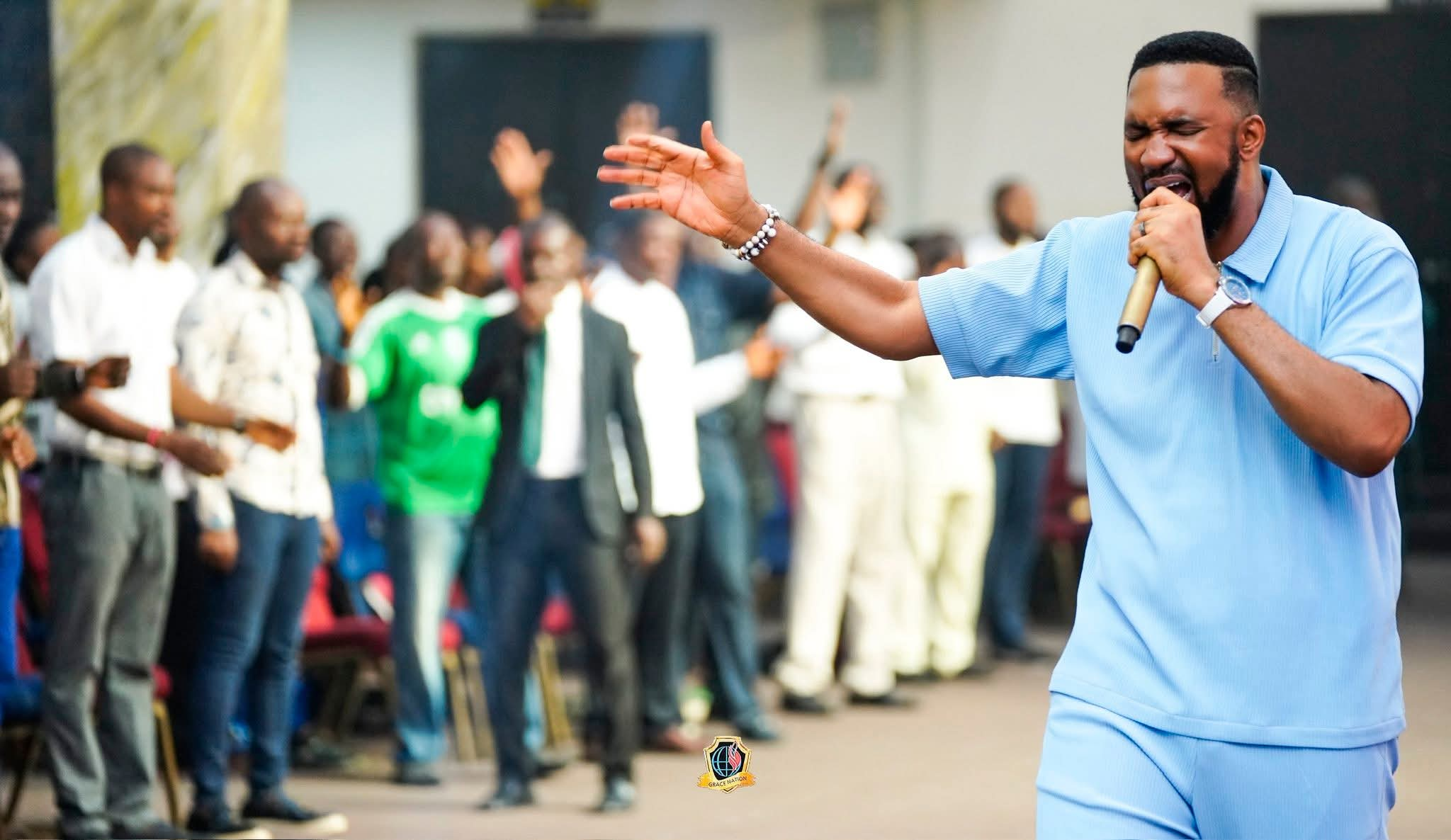
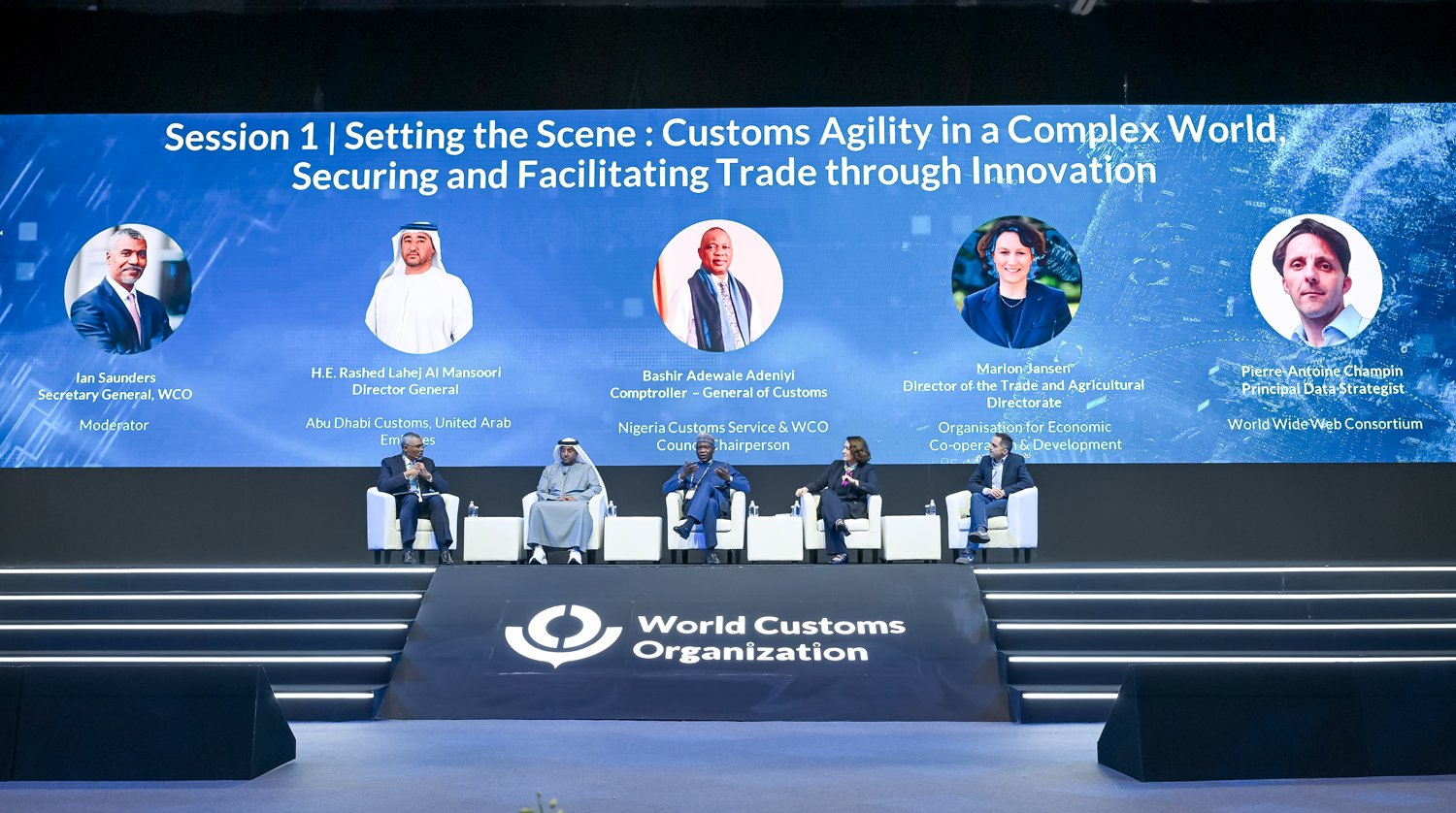
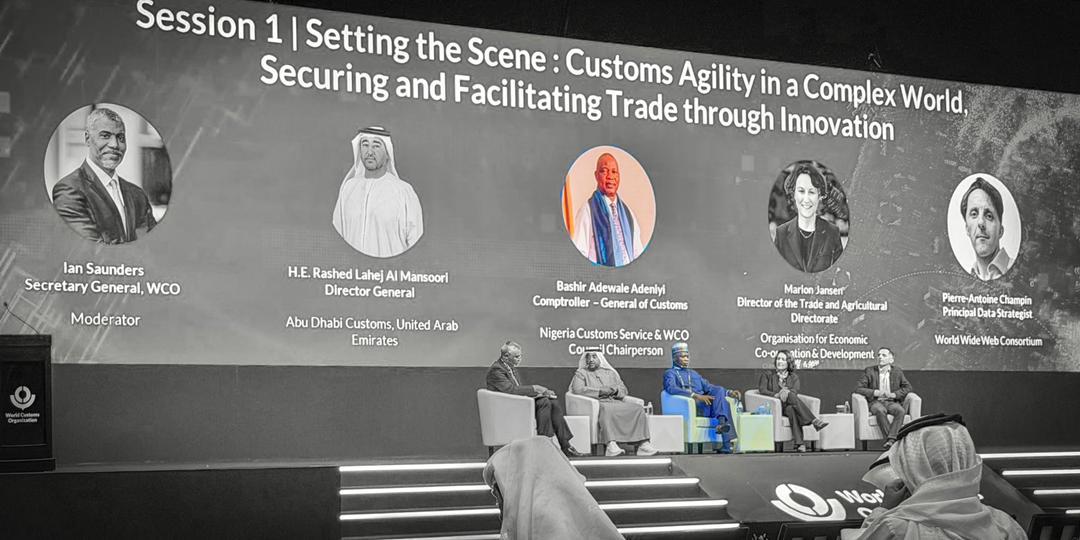
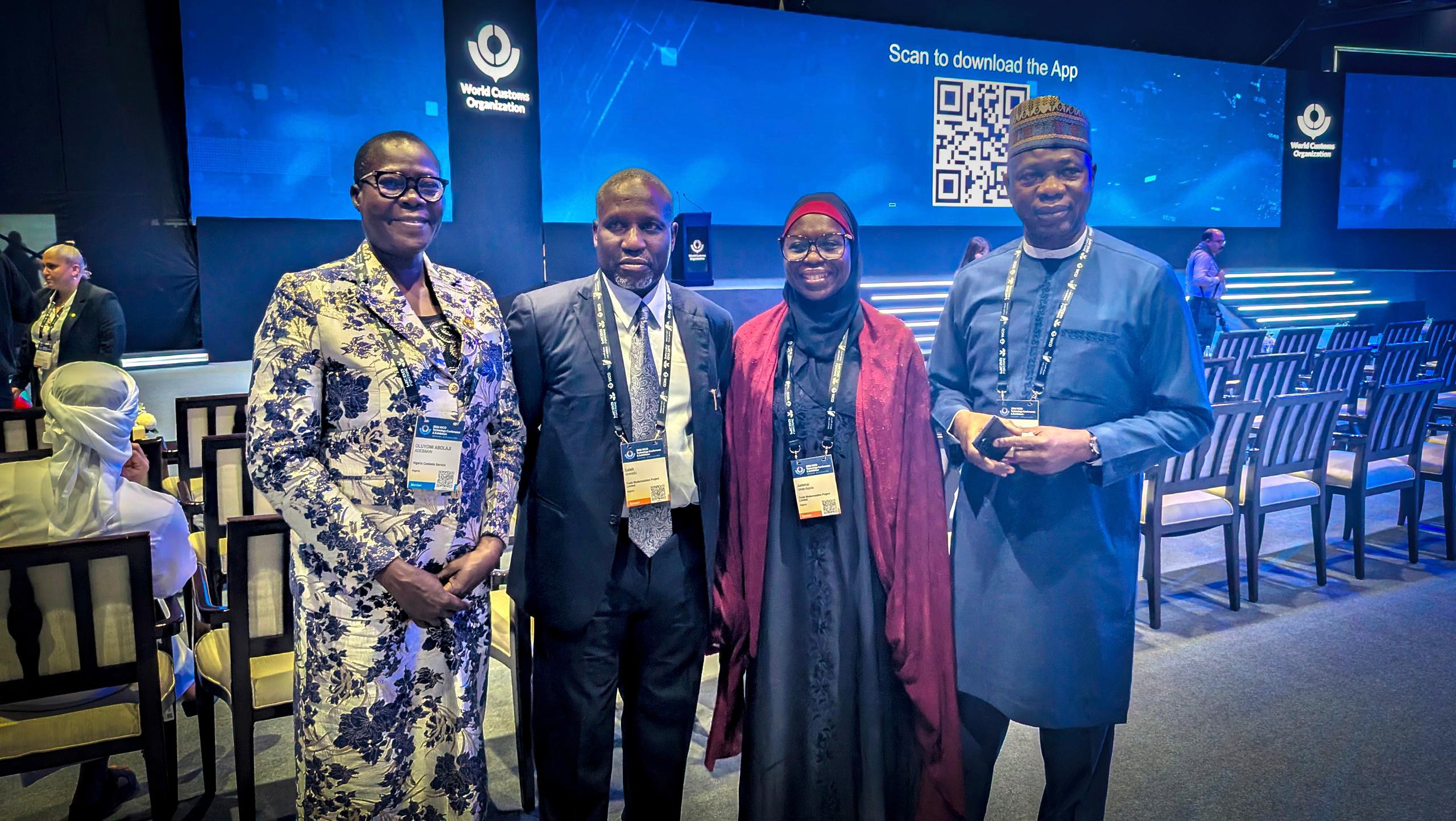

You must be logged in to post a comment Login